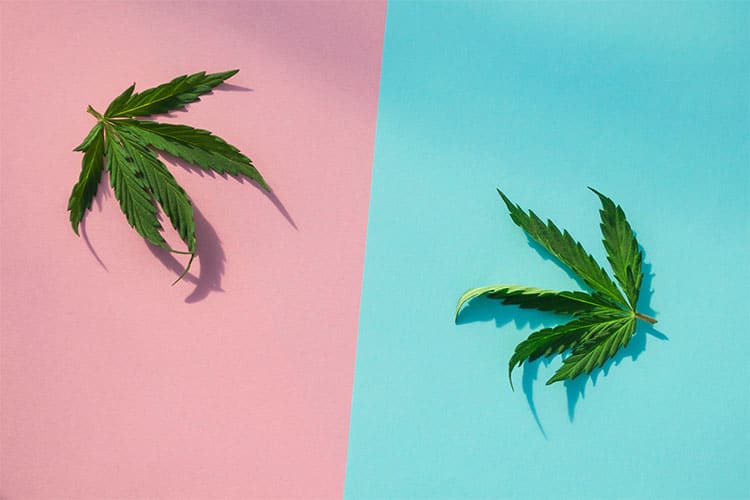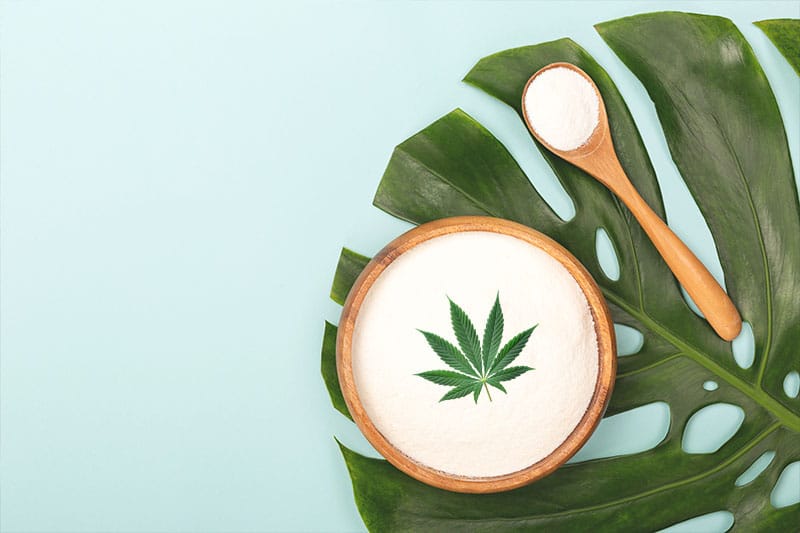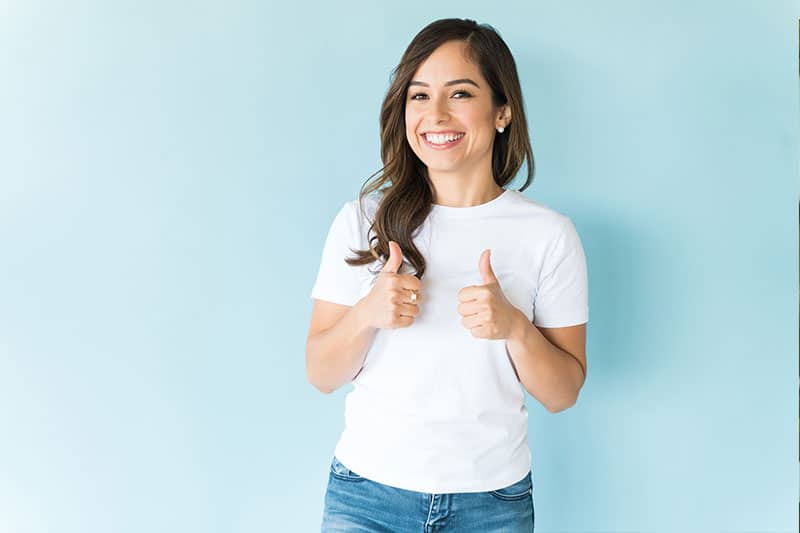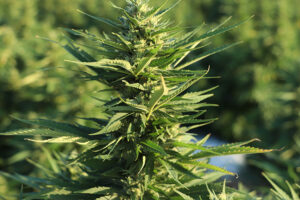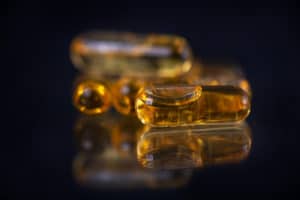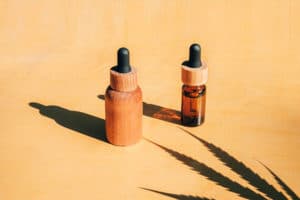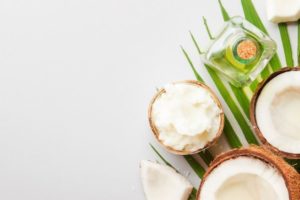As the popularity of CBD and THC products grows, many questions remain unanswered about the cannabis plant, its effects, and its compounds. One of the most common questions these days is, “Can you have CBD without THC?”
Below, we dive into this question and determine whether THC is necessary to make CBD more effective.
Quick Introduction to CBD and THC
CBD is one of the most important cannabinoids found in the cannabis plant. It is a naturally occurring element that people use in products such as edibles and oils to create a feeling of enjoyment and to achieve relief from pain. Unlike its companion–delta-9 tetrahydrocannabinol (THC)—CBD is not hallucinatory.
THC is a cannabis compound that gives its users a psychoactive and “high” feeling. According to one research study by the National Institute on Drug Abuse (NIDA), THC mimics the chemical anandamide (produced in the brain) in structure. Instead of normal brain communication through neurons, THC attaches to neurons and modifies the process. In doing so, it affects movements, memory, pleasure, thinking, and concentration.
What Are the Medical Benefits of CBD and THC?
CBD and THC each have numerous medical applications and uses. CBD is effective in treating epilepsy, anxiety, and in some cases, psychosis, while scientists and doctors have discovered THC’s usefulness for its pain-relieving and relaxing qualities.
Common uses for CBD:
- Anti-inflammatory
- Anticonvulsant
- Anti-anxiety
- Neuroprotective
- Anti-tumoral
Common uses for THC:
- Painkiller
- Appetite stimulant
- Producer of relaxation and euphoria
- Sleep aid
- Muscle relaxant
According to one medical research study, CBD is also useful for treating depression, addiction management, skin conditions, and cancer. THC is almost equal to CBD in its effectiveness since studies show that it is beneficial for treating chronic pain, multiple sclerosis, glaucoma, and spinal injury.
Why is CBD Used More than THC for Medical Purposes?
Many governments characterize THC as an illegal drug with long-term cognitive side effects such as reduced control, impaired thinking, and altered decision-making. CBD, however, lacks the cognitive effects caused by THC, which appears to make CBD an ideal product for those who do not want to use THC since they worry about feeling high and out of control. CBD can deliver even more significant medical benefits than THC, and if not extracted from marijuana, it is legally available in the U.S.
CBD Oil With THC: The Famous Entourage Effect
Many people use CBD in combination with other nutrients, cannabinoids such as THC, and other hemp compounds to boost effectiveness–as scientists like to call it, the “entourage effect.” When you mix them, you can enjoy more benefits, such as relieving pain, reducing inflammation, and relaxing at the same time.
If you are looking to target your body as a whole, you can experiment with a full-spectrum product. The entourage effect suggests that different compounds work better together than when used on their own. However, many people want to enjoy a safer version and therefore seek CBD oil without THC.
How Much THC is in CBD Oil?
CBD oil comes from either the marijuana or hemp plant. On the federal level in the U.S., hemp-derived CBD oil is legal (as long as it contains less than 0.3% THC). However, CBD derived from marijuana is illegal.
While some people use the terms hemp and marijuana interchangeably, these plants are different for several reasons. Hemp is high in CBD and low in THC, while marijuana is high in THC and low in CBD. Growers cultivate hemp for its stalks and seeds and use it in oils, textiles, food, and more.
The percentage of THC in CBD oil depends upon the products, the brand, and the supplier you are using. Each product varies in its relative THC and CBD quantities, so before you buy, be sure to do some extra reading and research.
CBD oils usually come from hemp—therefore, they contain less than 0.3% THC content. For those who are sensitive to THC and have a bad experience with side effects, it is possible to buy CBD oil with no THC.
CBD Without THC: Does it Work?
CBD oil does work without THC. While some consumers prefer these two compounds in conjunction, the fact is that THC does produce specific side effects. CBD oil without THC allows you to enjoy the benefits of CBD without any psychoactive effects of THC.
CBD oil on its own behaves differently within the body than THC does, and this may give CBD a superior means of producing a positive impact on your mental and physical health.
Here are some of the benefits of using CBD without THC.
Promotes healthy functioning of the nervous system
CBD without THC might promote a positive state of mind and impact the functioning of the nervous system directly.
CBD functions as an agonist of 5-HT1A receptors—also known as serotonin receptors––responsible for regulating the mood. By interacting with serotonin receptors, CBD promotes a healthy mental state and will often make you feel happier and calmer. However, when the nervous system gets thrown out of balance, you may feel a sudden change in mood. By consuming CBD oil without THC, you can regulate the functioning of the nervous system and control your mental state.
Helps anxiety and PTSD
For people with social anxiety, public speaking can be stressful. A small experiment in the Neuropsychopharmacology journal discovered that CBD could reduce anxiety and cognitive impairment.
Soldiers often return home obsessed with war. They relive precious moments and frequently have nightmares when sleeping. The Department of Veterans Affairs is taking the lead in the first study on CBD, combined with psychotherapy, to help soldiers return to their previous lifestyles and activities.
Promotes better sleep
Without enough sleep, it can be hard to complete all of your daily activities and responsibilities. The National Institutes of Health estimates that around 30% of the population has trouble sticking to a regular sleeping regime, and more than 10% have symptoms of daytime functional impairment with insomnia.
Even though many things can help you fall asleep and improve your sleeping habits (apps, music, and more), a lot of people turn to CBD because it promotes healthy sleep. Even without THC concentration, CBD oil may help you get to sleep faster than you think. If you aren’t getting enough sleep during the night, CBD oil can relieve you from stress and anxiety and put you into a horizontal position in no time.
Balances the endocannabinoid system
Taking CBD without THC leads to a balanced endocannabinoid system. One of the differences between CBD and THC is the way they interact with your endocannabinoid system. While they have a similar structure, THC binds to the receptor of the endocannabinoid system (CB1) and imitates the actions of the system itself to produce psychoactive effects.
CBD, however, doesn’t bind to the receptors. Instead, it breaks the binding of THC with CB1 and lowers the hallucinatory effects. By improving the endocannabinoid system, all of your body functions should experience a boost, which may lead to better overall health.
Doesn’t show up in drug testing
Another reason why taking CBD without THC might be a better idea is that CBD doesn’t show up on drug tests. Most drug screening tests look for THC in your blood, not CBD; therefore, if your job position requires regular drug testing, it may be a good idea to choose THC-free products.
What is CBD Isolate?
CBD isolate is an extracted compound that contains CBD only. It may be a good option for people seeking higher CBD doses or those looking for relief from certain conditions and diseases that only pure CBD can provide.
Although CBD isolate is not as effective as broad-spectrum CBD or full-spectrum CBD, nature knows best, and many people believe that consuming products with raw ingredients is always a better option.
The Pros and Cons to Each Spectrum
Full-Spectrum CBD
Pros:
- Provides the cannabis benefits (entourage effect)
- Goes through minimal processing
- Offers more significant symptom relief (due to THC)
Cons:
- May cause psychoactive effects or unwanted side-effects (especially for those sensitive to THC)
- Has a strong flavor and odor (for some people, it is unpleasant)
- May have questionable legal status (while hemp oil with less than 0.3% THC is permitted in the U.S., full-spectrum CBD is still in the legal gray zone.
Full-spectrum CBD is best for those looking for a certain THC-to-CBD ratio, people with severe conditions that CBD isolate couldn’t alleviate, and users living in countries where cannabis is legal.
Broad-Spectrum CBD
Pros:
- Similar to full-spectrum CBD, it offers the full cannabis benefits
- It carries a small risk of psychoactive effects
- It has no legal risk (contains 0% THC)
Cons:
- Some medical studies show that THC and CBD work best simultaneously, supporting each other’s beneficial features
- Some say broad-spectrum CBD has an unpleasant flavor
Broad-spectrum CBD is best for people with certain conditions and diseases that CBD isolate couldn’t relieve, those who get regular drug tests, people who are sensitive to THC, and users living in countries where cannabis is legal.
CBD Isolate
Pros:
- The purest form of the cannabinoid
- No risk of psychoactive effects or side-effects
- No legal risks (doesn’t contain THC)
- Odorless and tasteless
Cons:
- As a singular compound, can’t get you high and doesn’t provide the entourage effect
- Doesn’t contain other beneficial cannabinoids found in cannabis
CBD isolate is best for those who want to take high CBD doses, people who are sensitive to THC, employees who often undergo drug testing, and users who prefer no flavor.
CBD Dosage: How Much CBD Oil Should You Take?
The amount of CBD oil you should take depends on several factors, including your body weight, the condition/disease you are treating, and the CBD concentration in each drop.
Before trying CBD, consult with your doctor about a safe dosage for your condition. If your doctor tells you how much to take, make sure to stick to the recommendation (especially if you are taking other prescription medications that contain CBD).
While you can’t overdose on CBD, you shouldn’t experiment with your dosage.
Things to Consider When Choosing CBD Oil
Cannabidiols are growing in popularity; therefore, a lot of CBD products are available. However, not all CBD oils are created equal, so you should know how to choose the right CBD products (without THC) carefully.
The added ingredients
The packaging will mention hemp extract, hemp, or hemp oil as the main ingredients. While all of these refer to the CBD content, the oil may contain other ingredients added to improve the product’s consistency or taste. Make sure to check the added ingredients and determine whether they are healthy for you to consume.
CBD concentration
Another thing you should consider when choosing CBD oil without THC is to make sure you get the right concentration. Usually, you can find the concentration marked on the package, so before you buy, check to see whether it fits your needs. The concentration of CBD oils can vary in a range between 250 mg and 1,000 mg. If the concentration is not on the label, you can calculate it manually by taking the CBD amount in milligrams and dividing it by the number of ounces.
Origin
The U.S. and European nations have laws that regulate hemp and marijuana cultivation. Some manufacturers go the extra mile by ensuring that their products are free of chemicals, pesticides, and GMOs. Others don’t bother to notify consumers about the product’s origin. So before you decide to buy CBD oil, it pays to check the product label and ensure that it is THC-free.
CBD Without THC: Conclusion
Today, consumers have many ways to enjoy the multiple CBD benefits without the psychoactive side effects that THC brings. CBD without THC contains just as many health benefits as both compounds combined, so you’ll have no trouble relaxing, lower anxiety, and sleep like a baby.
The bottom line is that CBD works without THC, and it is up to you to decide what kind of product you want to try. Do you want to stick to CBD oil, or try gummies, capsules, or tinctures?
Users of all ages turn to CBD edibles and other products for a potential aid for their condition—or simply to relax and sleep better. It is proving to be one of the best remedies in recent times that both younger and elderly adults can use without any side effects.
No matter what effects you are looking for, CBD products have great potential to help you make it through your rough day.
FAQ’s About CBD Without THC
Question: What are the medical benefits of CBD and THC?
Answer: CBD and THC each have numerous medical applications and uses. CBD is effective in treating epilepsy, anxiety, and in some cases, psychosis, while scientists and doctors have discovered THC’s usefulness for its pain-relieving and relaxing qualities.
Question: Why is CBD Used More than THC for Medical Purposes?
Answer: Many governments characterize THC as an illegal drug with long-term cognitive side effects such as reduced control, impaired thinking, and altered decision-making. CBD, however, lacks the cognitive effects caused by THC, which appears to make CBD an ideal product for those who do not want to use THC since they worry about feeling high and out of control.
Question: How Much THC is in CBD Oil?
Answer: The percentage of THC in CBD oil depends upon the products, the brand, and the supplier you are using. Each product varies in its relative THC and CBD quantities, so before you buy, be sure to do some extra reading and research. On the federal level in the U.S., hemp-derived CBD oil is legal (as long as it contains less than 0.3% THC).
Question: Does using CBD without THC still have benefits?
Answer: CBD oil does work without THC. While some consumers prefer these two compounds in conjunction, the fact is that THC does produce specific side effects. CBD oil without THC allows you to enjoy the benefits of CBD without any psychoactive effects of THC.
Question: What is the advantage and disadvantage of full spectrum CBD?
Answer: Some of the advantage includes having the entourage effect, very natural, and offers more significant symptom relief. The disadvantage on the other hand are the psychoactive effects of it, have strong flavor, and its questionable legal status.
Question: What is the advantage and disadvantage of broad spectrum CBD?
Answer: Similarly to full spectrum it offers the ful cannabis benefits. Other advantages of broad spectrum are it only carries a small risk of psychoactive effects and it has no legal risk.
The disadvantage on the other hand is that broad spectrum has unpleasant flavor and some medical studies show that it doesnt have same effect as the full spectrum CBD.
Question: What is the advantage and disadvantage of CBD isolate?
Answer: CBD isolate advantage includes no legal risks, odorless and tastelesss, the purest form of CBD and totally no risk of psychoactive effects. The Cons however is that it doesnt provide the entourage effect, and it doesnt contain the other beneficial cannabinoids found in cannabis.
Question: How Much CBD Oil Should I Take?
Answer: The amount of CBD oil you should take depends on several factors, including your body weight, the condition/disease you are treating, and the CBD concentration in each drop. Before trying CBD, consult with your doctor about a safe dosage for your condition. If your doctor tells you how much to take, make sure to stick to the recommendation (especially if you are taking other prescription medications that contain CBD).
